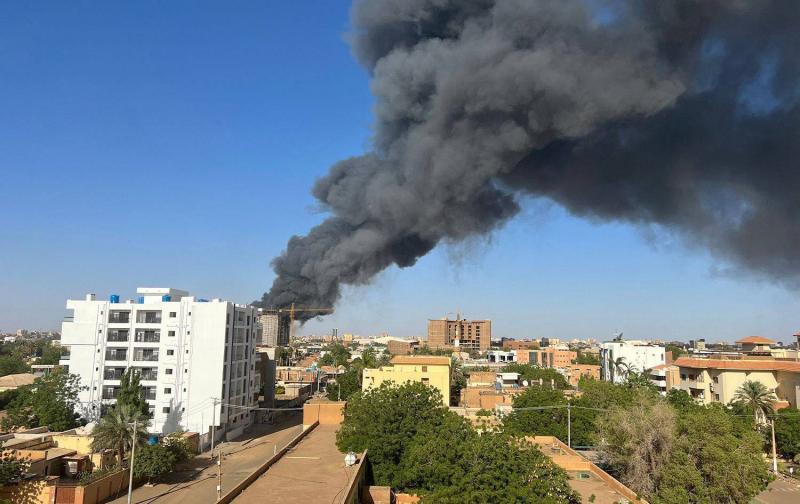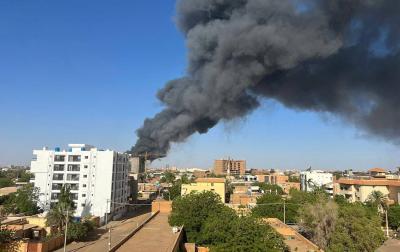Intense and ongoing clashes were heard today, Monday, in parts of the Sudanese capital, Khartoum, just hours before the end of the truce agreement that had provided some calm in the conflict lasting for six weeks. Residents in southern Khartoum on the opposite bank of the Nile reported, "There were also clashes late Sunday evening." UN High Commissioner for Refugees Filippo Grandi stated, "The Commission had earlier anticipated that about 800,000 Sudanese and 200,000 people from other nationalities would leave Sudan over the next six months." He added, "This prediction that we will reach these high numbers in the coming months may be conservative... Initially, I did not believe it would happen, but I am now beginning to feel concerned." Grandi observed that the collapse of law and order in Sudan, along with many rushing to leave, would create fertile ground for human trafficking, while the weapons being traded across borders could threaten further violence.
Since the beginning of the conflict, nearly 160,000 people have crossed from Sudan into Egypt, which already hosts a large Sudanese community. The power struggle between the Sudanese army and the Rapid Support Forces (RSF), a paramilitary group, erupted on April 15, resulting in hundreds of deaths and forcing approximately 1.4 million people to flee their homes. Both sides have stated they are considering extending the one-week ceasefire agreement brokered by Saudi Arabia and the United States, which is set to expire at 9:45 PM local time (19:45 GMT) today, Monday. The two countries stated on Sunday that both the army and the RSF had repeatedly violated the truce and hindered humanitarian assistance and the restoration of essential services. They have been monitoring the ceasefire remotely and have requested its extension.
Hassan Osman, a 55-year-old resident of Omdurman, told Reuters by phone that since last night, there have been strikes using all types of weapons between the army and the RSF. He added that there is a significant state of fear among residents, asking, "Where is the truce?" On a national level, the Ministry of Health stated that the fighting has resulted in more than 700 deaths, although the actual number is likely much higher. The Ministry separately recorded up to 510 fatalities in Geneina, one of the main cities in the Darfur region, which was already suffering from conflict and displacement. Looting and the destruction of factories, offices, homes, and banks have affected Khartoum. The capital frequently experiences power, water, and communication outages and suffers from severe shortages of medical supplies and equipment, as well as dwindling food supplies.
While intense fighting temporarily halted under the truce, clashes and airstrikes continued sporadically. The United Nations and relief organizations indicated that despite the truce, they struggle to obtain approvals and security guarantees to deliver aid and relief teams to Khartoum and other areas in need. A statement issued by Saudi Arabia and the United States late Sunday night spoke of ceasefire violations, including airstrikes, the army seizing medical supplies, and RSF members occupying civilian homes along with their involvement in looting. The statement added, "Both sides have informed the facilitators that they are committed to facilitating humanitarian assistance and restoring essential services for the benefit of the Sudanese people," noting, however, that both sides are "positioned for further escalation."




